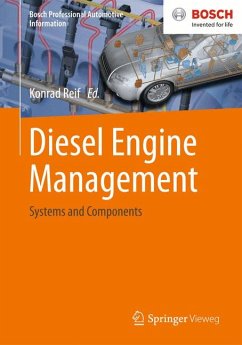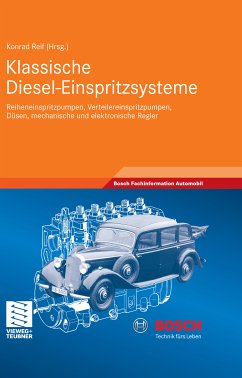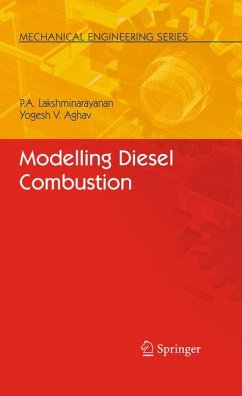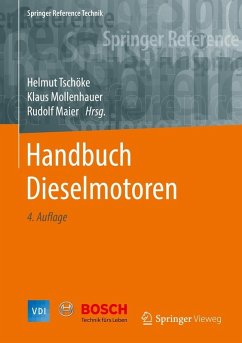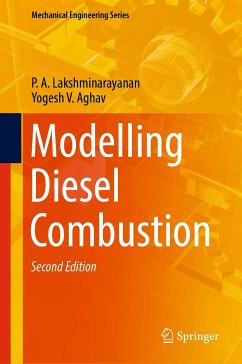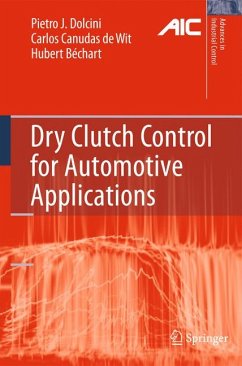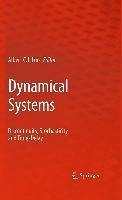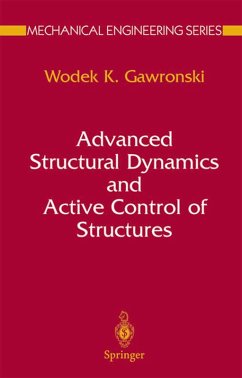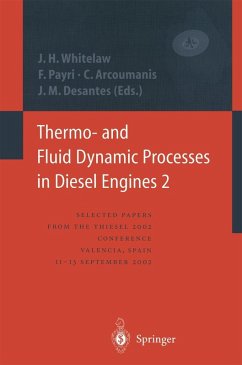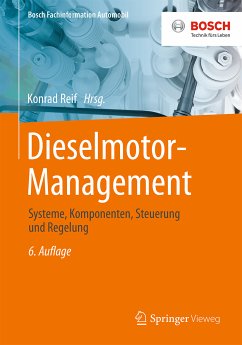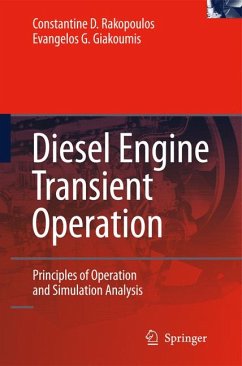
Diesel Engine Transient Operation (eBook, PDF)
Principles of Operation and Simulation Analysis
Versandkostenfrei!
Sofort per Download lieferbar
112,95 €
inkl. MwSt.
Weitere Ausgaben:

PAYBACK Punkte
56 °P sammeln!
Traditionally, the study of internal combustion engines operation has focused on the steady-state performance. However, the daily driving schedule of automotive and truck engines is inherently related to unsteady conditions. In fact, only a very small portion of a vehicle's operating pattern is true steady-state, e. g. , when cruising on a motorway. Moreover, the most critical conditions encountered by industrial or marine engines are met during transients too. Unfortunately, the transient operation of turbocharged diesel engines has been associated with slow acceleration rate, hence poor driv...
Traditionally, the study of internal combustion engines operation has focused on the steady-state performance. However, the daily driving schedule of automotive and truck engines is inherently related to unsteady conditions. In fact, only a very small portion of a vehicle's operating pattern is true steady-state, e. g. , when cruising on a motorway. Moreover, the most critical conditions encountered by industrial or marine engines are met during transients too. Unfortunately, the transient operation of turbocharged diesel engines has been associated with slow acceleration rate, hence poor driveability, and overshoot in particulate, gaseous and noise emissions. Despite the relatively large number of published papers, this very important subject has been treated in the past scarcely and only segmentally as regards reference books. Merely two chapters, one in the book Turbocharging the Internal Combustion Engine by N. Watson and M. S. Janota (McMillan Press, 1982) and another one written by D. E. Winterbone in the book The Thermodynamics and Gas Dynamics of Internal Combustion Engines, Vol. II edited by J. H. Horlock and D. E. Winterbone (Clarendon Press, 1986) are dedicated to transient operation. Both books, now out of print, were published a long time ago. Then, it seems reasonable to try to expand on these pioneering works, taking into account the recent technological advances and particularly the global concern about environmental pollution, which has intensified the research on transient (diesel) engine operation, typically through the Transient Cycles certification of new vehicles.
Dieser Download kann aus rechtlichen Gründen nur mit Rechnungsadresse in A, B, BG, CY, CZ, D, DK, EW, E, FIN, F, GR, HR, H, IRL, I, LT, L, LR, M, NL, PL, P, R, S, SLO, SK ausgeliefert werden.




